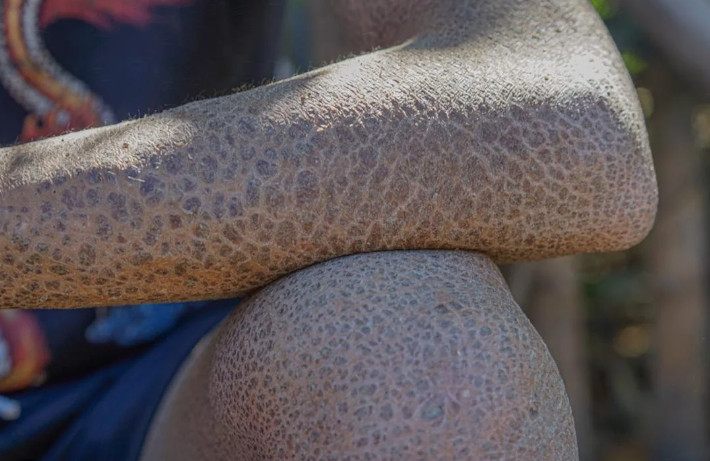Ichthyosis is a term that captures a labyrinth of skin disorders, each complex and nuanced in its own right. It’s a world where medical innovation and human stories intersect in profound ways. My recent podcast interview with Dr. Keith Choate, a trailblazing dermatology researcher and chair of dermatology at Yale University, brought this intricate landscape into sharp focus. From the necessity of early diagnosis to the exciting frontiers of genetic testing, Dr. Choate illuminated the multiple dimensions of ichthyosis, offering a blend of scientific rigor and compassionate insight that promises to redefine how we understand and address this multifaceted condition.
Ichthyosis presents itself in myriad ways, sometimes right from birth with symptoms like the cellophane-like ‘collodion membrane’ encasing newborns. As they grow, children may develop subtypes such as erythrokeratoderma, epidermolytic ichthyosis, or even the severe Harlequin ichthyosis. Dr. Choate impressed upon me the vital importance of early diagnosis. Done often within 24 hours of birth, an early diagnosis is pivotal for outlining an effective treatment plan and providing families with a realistic outlook, particularly for cases that include severe associated comorbidities like cardiomyopathy. One of the most compelling parts of our talk came when Dr. Choate highlighted the role of a specialized team in the patient’s healthcare journey. Comprehensive care isn’t just about medical treatments; it’s about psychological support, patient education, and creating a community among families undergoing similar struggles.
The Technological and Genetic Frontiers
The medical landscape for ichthyosis is in an encouraging state of flux, thanks to technological and genetic advancements. Prenatal detection has become more precise with the advent of 3D ultrasound technologies, offering families and healthcare providers the preparation time needed for immediate post-birth interventions. Dr. Choate’s enthusiasm was particularly noticeable when we touched upon the groundbreaking field of genetic testing. A passionate human geneticist, he explained that we are on the cusp of making genetic testing widely available and affordable. For families with a history of ichthyosis or similar genetic disorders, such preconception screening can offer a semblance of control, with options like pre-implantation genetic diagnosis providing new avenues for family planning.
Genetic testing goes beyond guiding reproductive choices. It provides valuable insights for personalized treatments by identifying the particular genes implicated in an individual’s condition. Dr. Choate talked about how some 60 genes are currently associated with various ichthyosis forms, and that ongoing research could reveal 20 or 30 more. When combined with clinical observations and sometimes even histological analysis, genetic testing enables an incredibly targeted diagnosis, thus making room for more effective treatment plans.
The Human Element: More Than Skin-Deep
As our conversation drew to a close, what resonated with me was not just the leaps in clinical advancements but also the impact of the condition on the families dealing with it. Dr. Choate didn’t just share medical insights; he delved into the psychological and social dimensions that often surround ichthyosis. A multidisciplinary approach is not merely beneficial but essential in offering patients and their families not just treatment but also a support network and a sense of community.
His work highlights the crucial intersection of science, empathy, and community building. While the clinical solutions are vital for immediate relief and long-term management, it’s the emotional and psychological support that sustains families as they navigate life with ichthyosis. It was apparent that Dr. Choate’s mission transcends the lab or the clinic; it’s about enabling a better quality of life for those grappling with this complex condition.
Wrapping Up: A Vision for the Future
In summing up the podcast session, I was imbued with a newfound sense of optimism about the future of ichthyosis diagnosis and management. Experts like Dr. Keith Choate are leading a twofold revolution: one that aims for precise medical interventions and another that fosters a sense of community among those living with the condition. It’s an approach that blends cutting-edge science with an abiding sense of humanity. And it’s this harmonious blend that gives me hope that we are indeed making strides in not just understanding but truly enhancing the lives of those affected by ichthyosis.





